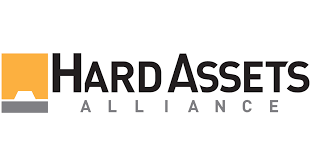Hello McFinancers!
Here’s your weekly round-up of what’s been happening in the world of money, markets, and macro trends: Topics
The Fed Doesn’t Adjust Interest Rates
Despite a 0.3% contraction in U.S. GDP during Q1 2025, the Federal Reserve opted to keep the federal funds rate unchanged at 4.25% to 4.50%. Officials noted that while net exports impacted the data, overall economic activity remains solid, with a stable labor market and persistent inflation pressures. The Fed emphasized that these factors don't yet warrant a rate cut, continuing their cautious approach after sharp hikes that peaked in 2023.
For investors, the Fed’s decision reinforces the higher-for-longer interest rate environment, which could continue to pressure risk assets like tech stocks and cryptocurrencies. At the same time, it may support fixed-income investments, which offer more attractive yields relative to riskier assets. Portfolio strategies should account for slower growth and elevated rates by balancing risk exposure and potentially increasing allocations to quality bonds or dividend-paying stocks.
New Hampshire Is The First State With Bitcoin Reserve
New Hampshire has become the first U.S. state to pass a law allowing its Treasurer to invest in Bitcoin and select digital assets, officially creating a "Strategic Bitcoin Reserve." The new law, HB 302, limits crypto exposure to 5% of the state's total reserves and mandates U.S.-regulated custody solutions to ensure security and transparency. It reflects a growing trend of integrating Bitcoin into long-term financial strategies and sets a precedent that other states may soon follow.
This development signals rising institutional and governmental acceptance of Bitcoin as a legitimate asset class. For investors, it could be a bullish indicator for long-term Bitcoin adoption and price stability, particularly if more states adopt similar policies. Investors may consider moderate portfolio exposure to Bitcoin or related assets to align with this emerging trend, while continuing to monitor regulatory shifts and adoption across the U.S. public sector.
Senate Stalls In GENIUS Act
The GENIUS Act, a bipartisan bill aimed at regulating stablecoins in the U.S., failed its first procedural Senate vote due to a lack of support for cloture, not the bill’s content. The 49-48 vote initially leaned toward passage until Senate leader John Thune flipped his vote to allow for reconsideration. While progress on the bill’s substance has been acknowledged by both parties, political disputes—particularly concerns around former President Trump’s crypto affiliations—are stalling its momentum. A renewed vote may occur as early as Monday.
The bill's delay underscores the political volatility surrounding crypto regulation, which can influence stablecoin markets and broader investor confidence in digital assets. If passed, the GENIUS Act could legitimize stablecoins through federal oversight, reducing regulatory risk and encouraging institutional adoption. Until then, crypto investors should expect short-term uncertainty but monitor developments closely, as clear regulation could unlock significant upside for compliant stablecoins and associated platforms.
Ethereum’s Pectra Upgrade
Ethereum successfully launched its Pectra upgrade on May 7, marking a major milestone in its development. The update includes EIP-7702, which enables externally owned accounts (EOAs)—ordinary user wallets—to execute smart contract logic, setting the stage for account abstraction. This change simplifies user interactions and improves security potential but also introduces new risks, as outdated contract assumptions may now be exploitable. Additionally, Pectra enhances staking efficiency and Layer-2 scalability, though bandwidth limitations may emerge as a new constraint.
For crypto investors, the Pectra upgrade is a double-edged sword. On the bullish side, it boosts Ethereum’s scalability and utility, potentially attracting more developers and users to the ecosystem—positive for ETH’s long-term value. However, short-term volatility may arise from security vulnerabilities and the time needed for the ecosystem to adapt. Investors with crypto exposure should stay informed on post-upgrade developments and consider ETH's evolving role as a long-term infrastructure play in decentralized finance and Web3.
A Word From Our Sponsor:
Hard Asset Alliance is a prominent and reputable platform in the world of hard asset investing. As an organization, they specialize in providing individuals and institutional investors with a secure and straightforward way to access a diverse range of tangible assets, such as precious metals like gold, silver, and other commodities. With a strong focus on transparency, reliability, and expert guidance, Hard Asset Alliance empowers investors to diversify their portfolios effectively and protect their wealth against economic uncertainties.
Go Premium — Get More Value
Not a premium member yet. Join our premium newsletter to get more investing insight:
2-week FREE trial
Monthly investment ideas across multiple asset classes
Access to our model portfolio, updated monthly
Current Subscribers
Get all available resources in one place: Member Resource Page
Disclaimer: This content is for educational and informational purposes only and does not constitute financial, investment, or legal advice. McFinance is not a registered investment advisor, broker-dealer, or financial planner. All investments carry risk, and you should conduct your own due diligence or consult with a licensed financial professional before making any financial decisions.
Some of our content may include affiliate links, which means we may earn a commission if you choose to make a purchase or sign up through them—at no extra cost to you. We only recommend tools and services we trust and use ourselves.
Past performance is not indicative of future results. You are solely responsible for your financial decisions.

